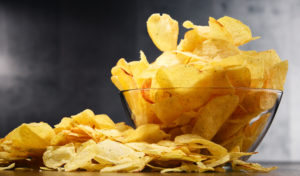Producers
Definitions and Basics
Definition:
A producer is someone who creates and supplies goods or services. Producers combine labor and capital—called factor inputs—to create—that is, to output—something else. Business firms are the main examples of producers and are usually what economists have in mind when talking about producers. However, governments are producers of some kinds of services—such as police services, defense, public schools, and mail delivery—and sometimes goods, such as when a government owns the oil fields and oil production (for example, OPEC). Households and individuals are producers of non-market goods and services such as cleaning, child-rearing, cooked food, etc. Entrepreneurs, by contrast, are idea-creators. They often also start off their ideas as producers.
Entrepreneurship. Concise Encyclopedia of Economics.
An entrepreneur is someone who organizes, manages, and assumes the risks of a business or enterprise. An entrepreneur is an agent of change. Entrepreneurship is the process of discovering new ways of combining resources. When the market value generated by this new combination of resources is greater than the market value these resources can generate elsewhere individually or in some other combination, the entrepreneur makes a profit. An entrepreneur who takes the resources necessary to produce a pair of jeans that can be sold for thirty dollars and instead turns them into a denim backpack that sells for fifty dollars will earn a profit by increasing the value those resources create.
In the News and Examples

Brendan O’Donohoe on Potato Chips and Salty Snacks. EconTalk podcast episode, August 2011. See also this lesson plan from AdamSmithWorks based on this podcast: Adam Smith’s Potato Chips.
Brendan O’Donohoe of Frito-Lay talks with EconTalk host Russ Roberts about how potato chips and other salty snacks get made, distributed, and marketed. The interview follows an hour-long tour of a local supermarket where O’Donohoe showed Roberts some of the ways that chips and snacks get displayed and marketed in a modern supermarket. The conversation is a window into a world that few of us experience or are even aware of–how modern producers and retailers make sure the shelves are stocked and their products get noticed….
The Sharing Economy is as Old as Markets, by Dwight R. Lee at Econlib, August 2, 2015.
While we benefit from the sharing by other consumers, when we want more of a product, we also benefit from the sharing by suppliers. Changes in consumer demand motivate some businesses to share productive resources with other firms.
Lisa Turner on Organic Farming. EconTalk podcast episode, December 2012.
Lisa Turner of Laughing Stock Farm talks with EconTalk host Russ Roberts about life as a small organic farmer. She describes her working day, the challenges of farming, the role of the U.S. Department of Agriculture in her life and what some job applicants who want to work on her farm need to understand about business….
Chris Anderson on Makers and Manufacturing. EconTalk podcast episode, December 2012.
Chris Anderson, author of Makers: The New Industrial Revolution, talks with EconTalk host Russ Roberts about his new book–the story of how technology is transforming the manufacturing business. Anderson argues that the plummeting prices of 3D printers and other tabletop design and manufacturing tools allows for individuals to enter manufacturing and for manufacturing to become customized in a way that was unimaginable until recently. Anderson explores how social networking interacts with this technology to create a new world of crowd-sourced design and production….
Elizabeth Pape on Manufacturing and Selling Women’s Clothing and Elizabeth Suzann. EconTalk podcast episode, April 2017.
Elizabeth Pape, founder of the women’s clothing company Elizabeth Suzann, talks with EconTalk host Russ Roberts about starting and running her company–a manufacturer and seller of high-end women’s clothing in Nashville, Tennessee. The conversation chronicles the ups and downs of her entrepreneurial story, the recent evolution of the women’s clothing market, and the challenge of competition from lower quality, lower-priced products….
Advertising, from the Concise Encyclopedia of Economics
Economic analysis of advertising dates to the thirties and forties, when critics attacked it as a monopolistic and wasteful practice. Defenders soon emerged who argued that advertising promotes competition and lowers the cost of providing information to consumers and distributing goods. Today, most economists side with the defenders most of the time….
Labor Unions, from the Concise Encyclopedia of Economics
For more than a century now, labor unions have been celebrated in folk songs and popular myth as fearless champions of the downtrodden working man, while “the bosses” are depicted as coldhearted exploiters of employees. But from the standpoint of economists—including many who are avowedly pro-union—unions are simply cartels that raise wages above competitive levels by capturing monopolies over who companies can hire and what they must pay….
Advanced Resources
Price Discrimination and the Future of Movies, by Adam Martin at Econlib, November 2, 2020.
…price discrimination strikes many first-time economics students as a bad thing. It’s another case of producers—especially Big Bad Corporations—extracting all the gains from economic cooperation for themselves. (This, of course, ignores the fact that consumers in one market are producers in another.) But taken together, the two conditions underwrite the greatest artistic achievement in mankind’s history: big budget comic book movies.
The Distribution of Wealth, by John Bates Clark
[This is the original book that worked out the economics of wages and returns to capital (economic rents) as presented in classrooms today—the marginal products of labor and capital. Difficulty level: very advanced.]

